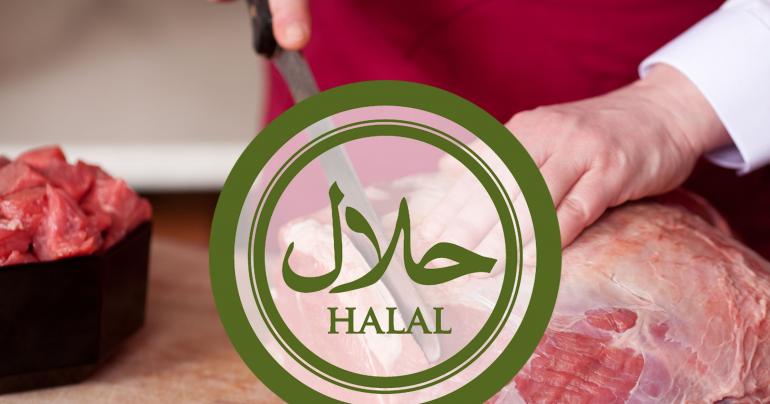WHAT IS HALAL? WHY SHOULD YOU EAT HALAL EVEN IF YOU ARE NOT A MUSLIM!
Being a student for a summer exchange program at Seattle, I couldn’t complain about anything except for one thing, FOOD! I, being a Muslim, found it difficult in finding halal meat (raw meat) in the local grocery stores close to Alder. After hearing ample amount of “No, we don’t have halal meat” and “what is halal” from the grocery stores in the UW district, made me realize that people aren’t arrogant about Halal meat, they are just not educated about it. That thought helped me come to the conclusion about writing this article. Back in Sri Lanka, being a Buddhist country, people tend to eat halal meat.
Islamic Dietary laws gives a detailed account of the animals (along with bird, insect etc) that are permit able for Muslims to eat, all such animals are halal, the Arabic word meaning lawful, anything unlawful is known as haram. I.e Halal
A brief out line of Zabiha is as follows:
Zabiha slaughter is believed to cause the least amount of pain to animals. It is important to perform slaughter with respect and compassion. The slaughter is performed by an adult of sound mind, who may be a Muslim, Jewish or Christian (People of the book).
In order for a consumable product to be Halal, the Quran and Sunnah give guidance on how to slaughter. Zabiha, however, does not in any way substantially define or encompass what is truly Halal. It is only one specific element that relates to how or if an animal is slaughtered. An example of this is that one can slaughter a pig or a human, but neither is permissible to consume in Islam. Similarly ‘zabiha’ makes no reference to the consumption of blood, or meat that is contaminated with impurities, witchcraft, or dead carcasses; all of which are prohibited in the Quran and Sunnah.
Within the Muslim community, halal is used to describe what is permissible both in food and in actions. We typically associate halal with food, as do many non-Muslims. For purposes of this article, we explore why halal food, specifically meat and poultry, is good for everyone.
How does halal food fit into this parameter?
Halal encompasses more than just meat, or even the type of meat eaten, although it is the most discussed type of product consumed.
For an animal to go from farm to table as halal food, it must have lived a pure life from the very beginning, finishing a cycle of life that is permissible in accordance with Islamic standards. It must have eaten well, been treated well, and been sacrificed well. It may sound good in theory, but what does this all mean?
The kind of treatment and feed an animal receives during its life is important. It should be not be abused, mistreated or caused any pain. It should not be confined to an area where it cannot move or walk normally or get fresh air. It should be fed clean water and food that is appropriate and absolutely never fed another animal or products that contain the by-products of other animals.
As an animal should be treated well during its life, it should also be treated well at the time it is sacrificed for us. The slaughter should never be done in the presence of other animals and the animal should be made comfortable as it is positioned for the sacrifice. The act of the sacrifice should be done with a sharp object, so as to accelerate the process and reduce the pain suffered by the animal as much as possible.
After words, the blood should be completely drained from the animal. It is the blood that carries toxins, germs and bacteria and when left inside the body of the animal, could potentially make people sick. At the very least, it could make the cooked meat quite tough. An amazing result of cooking and consuming halal meat is a healthy meat in which the resulting texture is tender and the meat delicious. Some people say they can “taste the difference”.
On the flip side of halal is the haram (impermissible). The most commonly known haram consumables are alcohol and pork (and their by-products), both of which are the cause of numerous health issues. (This is backed by scientific data.) Although these two products themselves could constitute their own essay, for purposes of this article they are only briefly mentioned here.
Instead of seeing the impermissible as a closed door on food choices, one can embrace an entire world of exciting, delicious and healthy variety of foods. Islam enjoins us to treat our bodies well as it has a right over us and will testify against us on the Day of Judgment for any injustices we may have caused it during our lifetime.
Treating our bodies with wholesome foods free of harmful ingredients — pesticides, toxins, pollutants, filth, etc. — is not just a value desired by Muslims, it’s desired by all of humanity. It’s a common need, a common desire and a common right, and that means everyone can benefit from consuming halal foods and avoiding what is not.
If you truly care about animal rights and want to know which animals are healthier for consumption those that have died through Electrical Stunning/ Gas Stunning / Percussive Stunning or those that have been slaughtered in a halal way, then dig into the matter the scientific way even if you are not a scientist.
Share This Post






